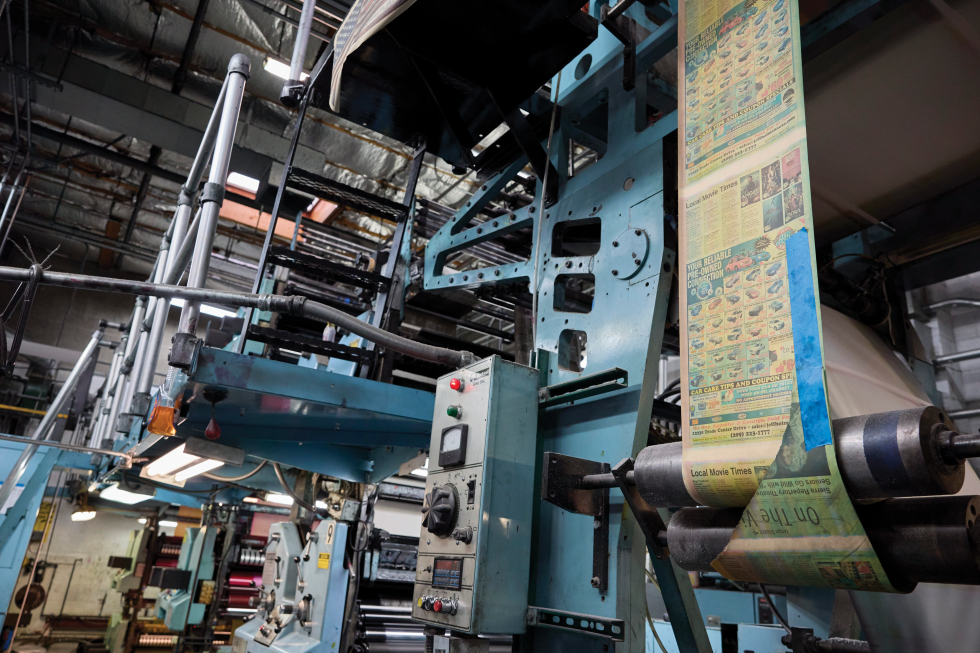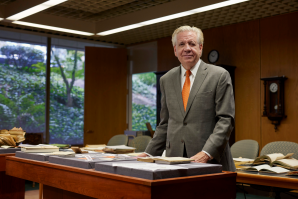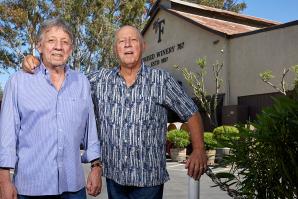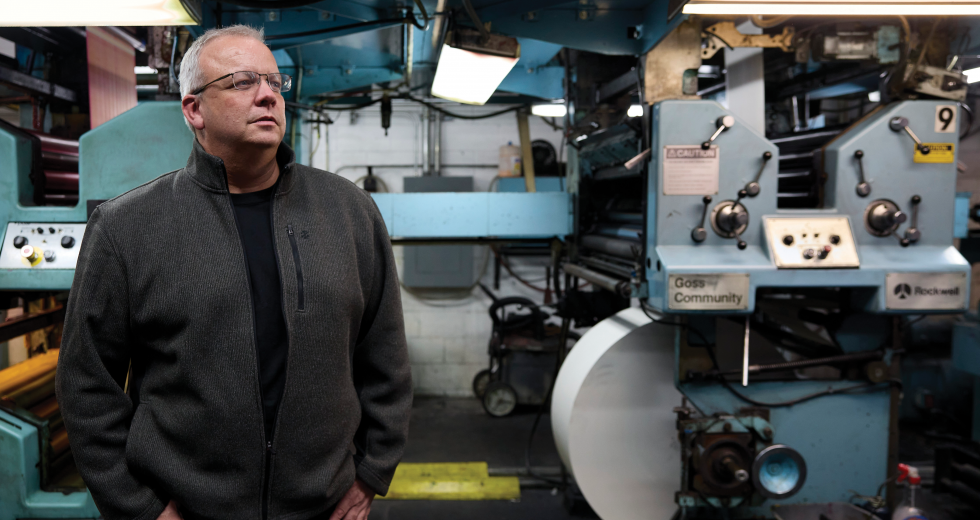Mark Twain once famously wrote to a scoop-hungry newspaper reporter who’d heard that the great American author was dying: “The report of my death was an exaggeration.” So are reports of the death of newspapers themselves.
Look no further than Gold Country Media. The average age of the six newspapers it publishes — the Folsom Telegraph, Auburn Journal, Placer Herald, Lincoln Messenger, Roseville Press Tribune and Loomis News — is nearly 135 years old.
“Our Folsom paper recently turned 165 and we did a large anniversary edition,” says Bill Sullivan, associate publisher of all the Gold Country Media papers. “The early days’ headlines were mostly on the railroad coming to town, gold discovery and settlement. The town of Lincoln just turned 130 and we did a smaller-scale anniversary issue.”
One common trait all these small cities and towns have is that they developed and grew alongside the newspapers when they started publishing, he says.
Sullivan, who has been at his job for seven years, proudly notes that in the past five years, “We’ve brought Gold Country to strong award-winning status.” Gold Country Media has won 30 California News Publishers Association awards in the last five years. “We’ve done that by keeping our focus on community — and having passionate, dedicated journalists and employees who love what they do.”
“Granted,” he clarifies, “we do it with less these days.”
All of Gold Country Media’s newspapers and three magazines are
printed on the big printing press which is located at the Auburn
Journal. All the newspapers are weekly except for the Auburn
Journal, which comes out twice a week.

Gold Country Media publishes its twice-weekly flagship newspaper, the Auburn Journal, six weekly newspapers and three monthly magazines called View that cover Auburn, Granite Bay and Lincoln with a staff of 71, Sullivan says. (A seventh paper, the Colfax Record, was incorporated into the Auburn Journal three years ago.) “The papers’ focus (are) on the communities we’re in, but when we covered a story like the Caldor fire in Grizzly Flats this past summer and fall, we recognized that evacuees from the area were pushed into Sacramento County and all over, so its impact became a very local story for us.”
The small-town Auburn Journal “broke a lot of the local angle of the (2018) arrest of the Golden State Killer,” Sullivan says. “He’d been an Auburn police officer. We found a photo of him in uniform and ran it.”
Small-town papers have a reputation for running mainly positive, often provincial stories that hyper-focus on community news that larger newspapers would either ignore or wouldn’t cover. Front-page headlines such as these are par for the course:
“Folsom’s Community Service Day Returns This Saturday” (The Folsom Telegraph)
“Big Crowd Has a Big Time Over 4-day Gold Country Fair” (Auburn Journal)
“We don’t pretend we’re not refrigerator journalism,” Sullivan says, “and I’m not going to pretend I made up that expression, which is accurate and funny.” The term refers to papers whose positive stories are clipped and displayed.
Sullivan makes clear that this doesn’t mean the publications ignore substantive stories, just that “We simply figure that bad news will always find us and we’ll be there waiting to cover it.” Among those items, says Sullivan, are crime and arrest logs, which he says “continue to be one of the most commonly read components of The Folsom Telegraph and our other newspapers.”
Gold Country Media has been owned by Brehm Communications for 27 years. Prior to that, Thad McFarland was editor of the Telegraph, which his family owned and operated. All the company’s papers would eventually spring from there for more than 50 years. They’d bought the paper from the previous owner, Isaac Fiel, in October 1889, and sold it to Ed Shirton in 1937. In 1976, the Telegraph was sold to Sierra Publications and 14 years later to Lesher Communications. Brehm, a family business, purchased the entire news operation in 1995. Based in San Diego, the company owns 60 local papers in seven states.
John Love, general manager of Gold Country Media for Brehm Communications, started with the company in 2014. He previously spent 23 years at The Sacramento Bee. “I personally enjoy working for a family-owned business with a history of newspapering,” he says. “That brings tradition, history and commitment into the picture — which can be unique nowadays.”
“There’s a very personal commitment that comes from the Brehm family and it can be felt throughout our company,” Love says. “It’s like a breath of fresh air in the days of many news organizations (that are) owned by large corporations and investment groups. I love that we can take anything to our ownership and get the direct support or responses that I believe is a big part of a family-owned business.”
“We do some things online, sure, but we don’t want to lose people who want to hold their newspaper in their hands.”
Bill Sullivan, associate publisher, Gold Country Media
For Sullivan, the associate publisher, the death of community newspapers still seems far in the future, even as online news continues its rapacious gobble of print media. “We do some things online, sure,” he says, “but we don’t want to lose people who want to hold their newspaper in their hands.”
–
Do you know of any unique history, events, people or places for us to share in The Back Story? Email us at editorial@comstocksmag.com.
Recommended For You

The Back Story: Hidden Treasures
University of the Pacific finds a missing link in its rich history: its birth papers
Opening a cherished safe thought to contain untold historic
riches about the origins of University of the Pacific, President
Christopher Callahan wondered what he’d find.

The Back Story: The Long Pour
After 124 years in business, Frasinetti Winery continues making and serving its wine
Frasinetti Winery is the oldest family-owned wine producer in the
Sacramento Valley, withstanding the Prohibition and both World
Wars.

The Back Story: A Landmark’s Ups and Downs
Sacramento’s iconic Tower Bridge spans a river — and generations
The Sacramento landmark wasn’t always a golden gate to the
city.





Comments
Thank you